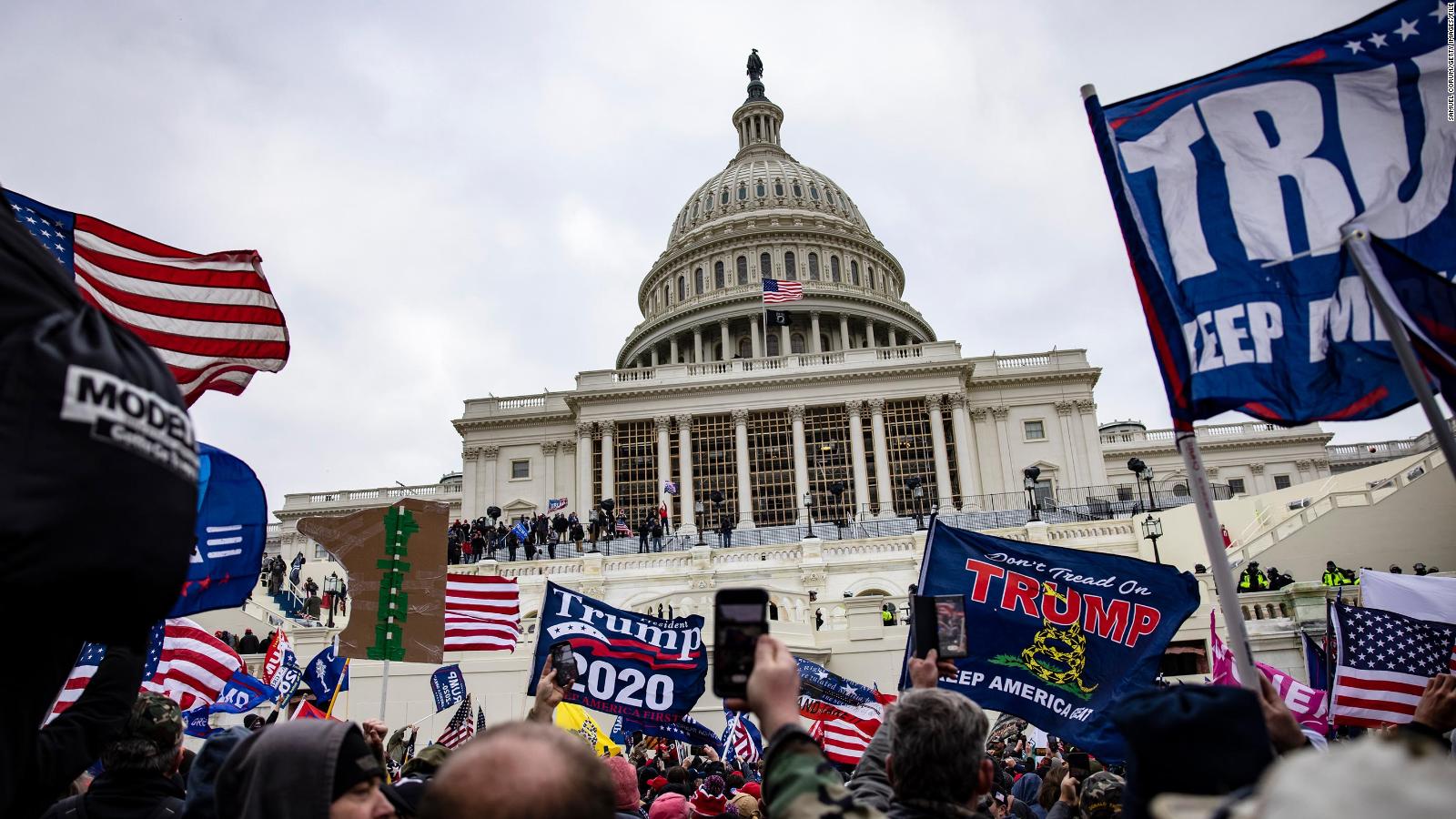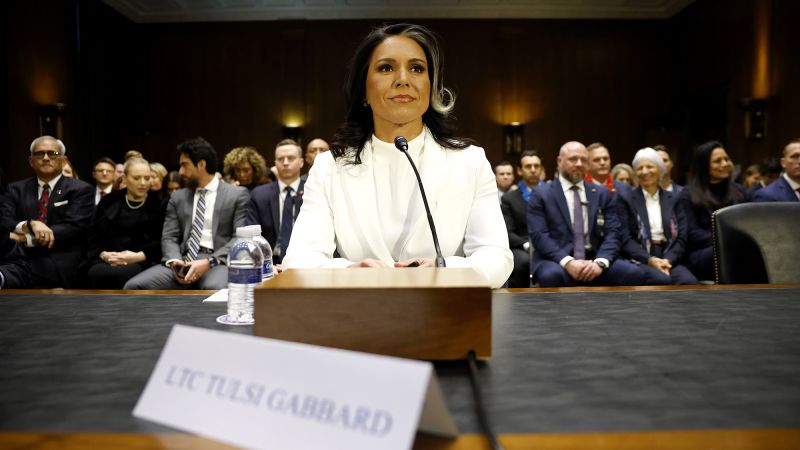(Trends Wide) — The House Select Committee investigating the January 6, 2021 assault on the US Capitol has gone to great lengths to present the findings of its extensive investigation succinctly and digestibly during the various hearings.
Each presentation to this point has carefully contextualized the circumstances surrounding the attack, while also reinforcing the commission’s task of linking election lies to the aftermath of January 6.
But the sheer amount of new detail makes it sometimes difficult to follow the commission’s work. Even when no presentation has been lost track of.
This is all that we have learned during the public hearings up to this point.
What we learned this Thursday at the hearings
In its third hearing in June, the commission detailed how former President Donald Trump tried to pressure Vice President Mike Pence to join his strategy of nullifying the 2020 presidential election.
The presentation featured live testimony from two witnesses: Greg Jacob, a former Pence attorney, and J. Michael Luttig, a retired Republican judge. Throughout the hearing, the panel reconstructed how John Eastman, Trump’s conservative lawyer, presented a legal theory according to which then Vice President Pence could unilaterally block the certification of the election. A theory that was flatly rejected by both the Trump White House lawyers and the Pence team.
Here are three big takeaways from Thursday’s presentation:
Trump was told that Eastman’s plan was illegal, but he tried it anyway. The former president was repeatedly pointed out that his plan to have Pence nullify the election on January 6 was illegal, but he tried to do it anyway.
According to witnesses, Pence himself and the lawyer who masterminded the scheme told Trump directly that the plan was unconstitutional and violated federal law. Commission members argued that this shows Trump’s dishonest intentions, and could set the stage for a possible indictment.
In a videotaped statement played Thursday, Pence’s former chief of staff, Marc Short, said the then vice president warned Trump “many times” that he did not have the legal or constitutional authority to overturn the results when he presided. the joint session of Congress on January 6 to count the electoral votes.
Eastman emailed Giuliani about the possibility of receiving a presidential pardon after Jan. 6. In an email to Rudy Giuliani just days after Jan. 6, 2021, Eastman asked to be placed on a list of potential presidential pardon recipients, the commission revealed during Thursday’s hearing.
“I have decided that I should be on the pardon list, if that is still going on,” Eastman’s email to Giuliani read.
Eastman ultimately did not receive a pardon and refused to answer commission questions about his role in efforts to nullify the 2020 election, repeatedly invoking Fifth Amendment protections during his deposition, parts of the which was shown this Thursday.
Pence was very close to the agitators. The former vice president stood just 40 feet from a mob of Trump supporters inside Capitol Hill on Jan. 6, shortly after Trump tweeted about him, the House select committee showed Thursday.
“It was clear that the situation was getting worse, and getting worse fast. When that tweet was sent, the tweet about Mike Pence,” that should have been the last tweet, former deputy press secretary Sarah Matthews testified in a recorded statement.
“It seemed that he was pouring gasoline on the fire,” he added.
Read more conclusions here.
What Previous Hearings Revealed
The crowd followed Trump’s signals. During this month’s first hearing, which aired in prime time, the panel showed a compilation of some of the most disturbing footage from the January 6 assault on Capitol Hill. The videos showed the crowd directly following Trump’s signals, with one agitator appearing to read a Trump tweet into a megaphone so others could hear him.
In that tweet, Trump criticized Pence for announcing that he would not overturn the results of the 2020 election, while presiding over the joint session of Congress to certify Joe Biden’s victory.
Trump did not want the assault to stop. During its first hearing this month, the commission also revealed testimony from Trump White House officials that the former president did not want the attack on the US Capitol to stop, that he angrily resisted his own advisers. that they urged him to stop the agitators and that he thought his vice president “deserved” to be hanged.
Pence — not Trump — asked for help. In a new video aired during the first hearing this month, the panel showed footage of the Chairman of the Joint Chiefs of Staff, Gen. Mark Milley, saying that Pence was the one who ordered National Guard troops to respond to violence on January 6, but that the White House told him that he should report that it was Trump.
The staff fled McCarthy’s office. Another video from the committee showed staff from the office of House Republican Leader Kevin McCarthy frantically leaving after rioters stormed the Capitol.
The video was highlighted by McCarthy’s role after Jan. 6, and the opposition to the House committee he has shown since then.
The Trump team and his family turned against him. The commission’s first hearing was reinforced by never-before-seen videos showing members of the White House and the Trump campaign — as well as his daughter Ivanka Trump and son-in-law Jared Kushner — talking about how they didn’t believe in Trump’s claims that the election was stolen from him.
- Former Attorney General William Barr called Trump’s claims about voter fraud “all lies.”
- Ivanka Trump said she respected Barr and “accepted what she said” about the election.
- Trump spokesman Jason Miller said the campaign data officer told Trump in “pretty clear terms that he was going to lose.”
Determinant testimony of the Capitol Police. Capitol Police officer Caroline Edwards was the first witness to testify before the commission this month, and became the face of violence against security forces during the insurgency.
“I was told a lot of things on January 6, 2021 and in the days after,” Edwards said. “They told me I was Nancy Pelosi’s dog, they called me incompetent, they called me a hero and a villain. They told me I was a traitor to my country, my house and my Constitution. In reality, I was none of those things.”
“I was an American coming face-to-face with other Americans and wondering many times — many, many times — how we got to this point. I’ve been insulted before, but my patriotism or my duty,” Edwards added.
Campaign financing details. One of the key details the commission revealed during its second hearing this month, held Monday, was how Trump’s lies about the election led his campaign and the political action committee he created after the election to raise millions of dollars. Dollars.
Giuliani’s influence. The commission has also focused on the testimonies that distinguish between two groups that advised Trump in the days after the elections: the “normal team” and those who were with Giuliani promoting unfounded allegations of electoral fraud.
The commission even inquired into Giuliani and his condition on election night, playing a video of Miller’s statement that Giuliani “had had too much to drink.”
“I mean, the mayor was definitely intoxicated,” Miller said. “But he didn’t know his level of intoxication when he talked to the president, for example,” he added.
What’s next now?
The panel is scheduled to hold two hearings next week, one on June 21 and one on June 23, both beginning at 1 pm Washington time.
Republican Rep. Liz Cheney of Wyoming, the committee’s vice chair, has outlined these issues for the following hearings:
Try to use the government to spread your lie. This hearing, originally scheduled for Wednesday but postponed, will show how “Trump corruptly planned to replace the United States Attorney General so that the Justice Department would spread his false claims that the election was stolen.”
Pressure on state legislators. This hearing will provide “evidence that President Trump corruptly pressured state legislators and election officials to change the results of the election.”
Inciting insurrection. The final hearings in June will reveal how “Trump convened a violent mob and illegally directed them to march on the US Capitol” and “failed to take immediate action to stop the violence and instruct his supporters to leave the Capitol.” .
What leaves the assault on the Capitol?
The drama of division. Commission members widely agree that Trump committed a crime when he promoted a conspiracy to prevent the peaceful transfer of power. But they are divided on what to do about it, including whether to make a criminal referral of Trump to the Justice Department, four sources connected to the panel told Trends Wide.
Ginni Thomas’ emails. The House select committee has email correspondence between Eastman and Virginia “Ginni” Thomas, a conservative activist who is also the wife of Supreme Court Justice Clarence Thomas, a source familiar with the investigation told Trends Wide.
The source who spoke to Trends Wide would not elaborate on the content of the emails or say whether they were direct messages between the two or part of a larger group correspondence. The newspaper The Washington Post was the first to report on the emails.
Committee Chairman Bennie Thompson, a Mississippi Democrat, said Thursday that the panel has sent a letter to Thomas asking him to speak with them about his role in the effort to overturn the 2020 election results, Thomas said in an interview. with The Daily Caller posted that same day: “I’m looking forward to talking to them.
With information from Zachary Cohen, Jeremy Herb, Alex Rogers, Zachary B. Wolf, and Marshall Cohen.




